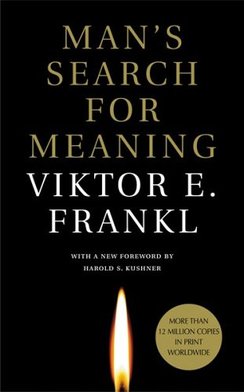I am reading Man's Search for Meaning by Viktor Frankl at the recommendation of a friend. I came across a line Frankl quoted from a poem by Rainer Maria Rilke, "How much suffering there is to get through!" and decided to take a look at the whole poem. I tried to find a translation for the whole poem, with no luck, but easily found the original. So, I took my rusty German skills and came up with a rough translation that I do not endorse! And I admit, I have taken some liberties. If anyone has an "official" translation or a better grasp of the sentence structure, idioms, etc. and would like to suggest corrections to the translation, please comment.
From Rainer Maria Rilke's "Poems in the Night"
Here is the original German:
Ist Schmerz, sobald an eine neue Schicht
die Pflugschar reicht, die sicher eingesetzte,
ist Schmerz nicht gut? Und welches ist der letzte,
der uns in allen Schmerzen unterbricht?
Wieviel ist aufzuleiden. Wann war Zeit,
das andre, leichtere Gefühl zu leisten?
Und doch erkenn ich, besser als die meisten
einst Auferstehenden, die Seligkeit.
Here is my translation:
Is pain, when it is unavoidable,
is pain not good?
What in the end gives reprieve
to those of us in pain?
How much suffering there is to get through.
When was time the easier to manage?
And after all I see,
better than most rising, someday,
from the dead
is bliss, now.
This translation is written through the eyes of having read the first half of Man's Search for Meaning, which has a strong influence on how I translated this poem. Frankl writes, "When a man finds that it is his destiny to suffer, he will have to accept his suffering as his task; his single and unique task. He will have to acknowledge the fact that even in suffering he is unique and alone in the universe. No one can relieve him of his suffering or suffer in his place. His unique opportunity lies in the way in which he bears his burden."
Frankl and Rilke both seem to be saying that it is better to manage one's suffering well now, than to collapse under its weight and possibly never escape it. This idea has made me thoughtful and yet I wonder what bliss can be found in suffering like Frankl's? Have you read Man's Search for Meaning? What say you?
I have more to read. I am curious.
From Rainer Maria Rilke's "Poems in the Night"
Here is the original German:
Ist Schmerz, sobald an eine neue Schicht
die Pflugschar reicht, die sicher eingesetzte,
ist Schmerz nicht gut? Und welches ist der letzte,
der uns in allen Schmerzen unterbricht?
Wieviel ist aufzuleiden. Wann war Zeit,
das andre, leichtere Gefühl zu leisten?
Und doch erkenn ich, besser als die meisten
einst Auferstehenden, die Seligkeit.
Here is my translation:
Is pain, when it is unavoidable,
is pain not good?
What in the end gives reprieve
to those of us in pain?
How much suffering there is to get through.
When was time the easier to manage?
And after all I see,
better than most rising, someday,
from the dead
is bliss, now.
This translation is written through the eyes of having read the first half of Man's Search for Meaning, which has a strong influence on how I translated this poem. Frankl writes, "When a man finds that it is his destiny to suffer, he will have to accept his suffering as his task; his single and unique task. He will have to acknowledge the fact that even in suffering he is unique and alone in the universe. No one can relieve him of his suffering or suffer in his place. His unique opportunity lies in the way in which he bears his burden."
Frankl and Rilke both seem to be saying that it is better to manage one's suffering well now, than to collapse under its weight and possibly never escape it. This idea has made me thoughtful and yet I wonder what bliss can be found in suffering like Frankl's? Have you read Man's Search for Meaning? What say you?
I have more to read. I am curious.

 RSS Feed
RSS Feed